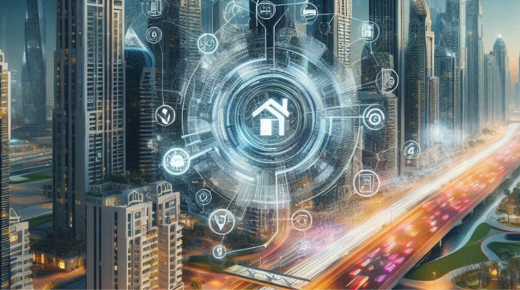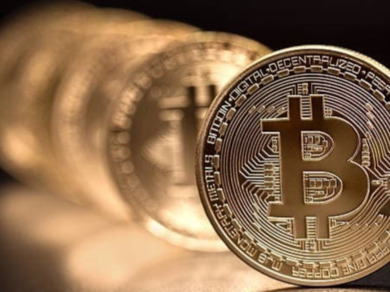“The Technological Renaissance of Dubai’s Real Estate Sector”

By Dr. Pooyan Ghamari, Swiss Economist
Dubai’s real estate market has undergone a significant transformation over the past few decades. A city once primarily known for its oil wealth, Dubai has managed to diversify its economy, establishing itself as a global hub for tourism, trade, and innovation. Real estate has been at the heart of this expansion, and today, the role of technology in shaping this industry is undeniable.
The Digital Transformation of Dubai’s Real Estate
The fusion of technology and real estate in Dubai is not just a trend; it’s an integral part of the city’s vision to position itself as a leader in smart, sustainable living. From AI-driven solutions to blockchain-based transactions, the digital transformation of Dubai’s real estate is setting the standard for other global cities.
Smart Cities and AI Integration
Dubai’s ambition to become one of the world’s leading smart cities has influenced the real estate sector significantly. AI integration has brought unprecedented efficiency to property management, development, and sales processes. Machine learning algorithms are now capable of analyzing vast amounts of data, providing developers with insights into market trends, customer preferences, and even predicting future property values.
Smart homes equipped with AI systems are becoming increasingly popular, offering residents personalized experiences, from energy-efficient environments to automated security features. For property developers, the use of AI ensures that projects meet sustainability goals while aligning with consumer expectations in terms of comfort and convenience.
Blockchain: Redefining Property Transactions
One of the most revolutionary technologies in Dubai’s real estate sector is blockchain. Blockchain’s decentralized ledger system is reshaping how property transactions are conducted. Traditionally, property deals involved a lengthy process with numerous intermediaries, including brokers, banks, and legal experts. However, blockchain is streamlining this process by enabling direct, transparent, and secure transactions between buyers and sellers.
Dubai has been quick to adopt blockchain in its vision of becoming a fully paperless government, and this includes the real estate industry. Smart contracts, powered by blockchain, ensure that property agreements are tamper-proof and executed automatically when predetermined conditions are met. This innovation not only speeds up transactions but also reduces the risks of fraud.
Virtual and Augmented Reality in Real Estate Marketing
The rise of virtual reality (VR) and augmented reality (AR) technologies has transformed real estate marketing in Dubai. Potential buyers can now take virtual tours of properties without having to physically visit them. VR allows for immersive experiences, where clients can explore every aspect of a property in detail, while AR enables the overlay of digital information on real-world environments.
For developers, this means reaching a global audience without geographical constraints. Investors and buyers from any corner of the world can experience the Dubai real estate market virtually, making it easier to attract foreign investment.
Big Data and Predictive Analytics
The vast amounts of data generated from real estate transactions, property listings, and customer behavior are now being harnessed to optimize decision-making processes. Big data, combined with predictive analytics, is helping developers understand market demand better, adjust pricing strategies, and forecast future trends.
For example, property developers can identify emerging neighborhoods before they become popular, enabling them to invest early and capitalize on future growth. Predictive analytics also aids real estate investors by analyzing historical data to forecast which properties will yield the highest returns over time.
Sustainability and the Role of Green Technologies
Dubai’s real estate sector is not only focused on luxury and innovation but also on sustainability. With climate change and environmental concerns becoming more pressing, Dubai has incorporated green technologies in its urban planning. Solar energy, energy-efficient building materials, and smart water management systems are now standard features in new developments.
These green initiatives are in line with Dubai’s commitment to sustainability and its goal of reducing carbon emissions. Property developers are now more inclined to invest in eco-friendly projects as they not only appeal to environmentally conscious buyers but also help in reducing long-term operational costs.
Conclusion: The Future of Dubai’s Real Estate
Dubai’s real estate market is a prime example of how technology can transform industries. The city’s forward-thinking approach, backed by government initiatives, has led to the seamless integration of AI, blockchain, VR, big data, and green technologies into the sector. These innovations are setting the stage for a future where property transactions are faster, more secure, and more accessible to a global audience.
As Dubai continues to evolve, its real estate sector will likely remain at the forefront of technological advancements, providing a blueprint for other cities aiming to integrate digital transformation into their development strategies.
This article was originally published on a.land. For more information and opportunities, visit shop.a.land.



